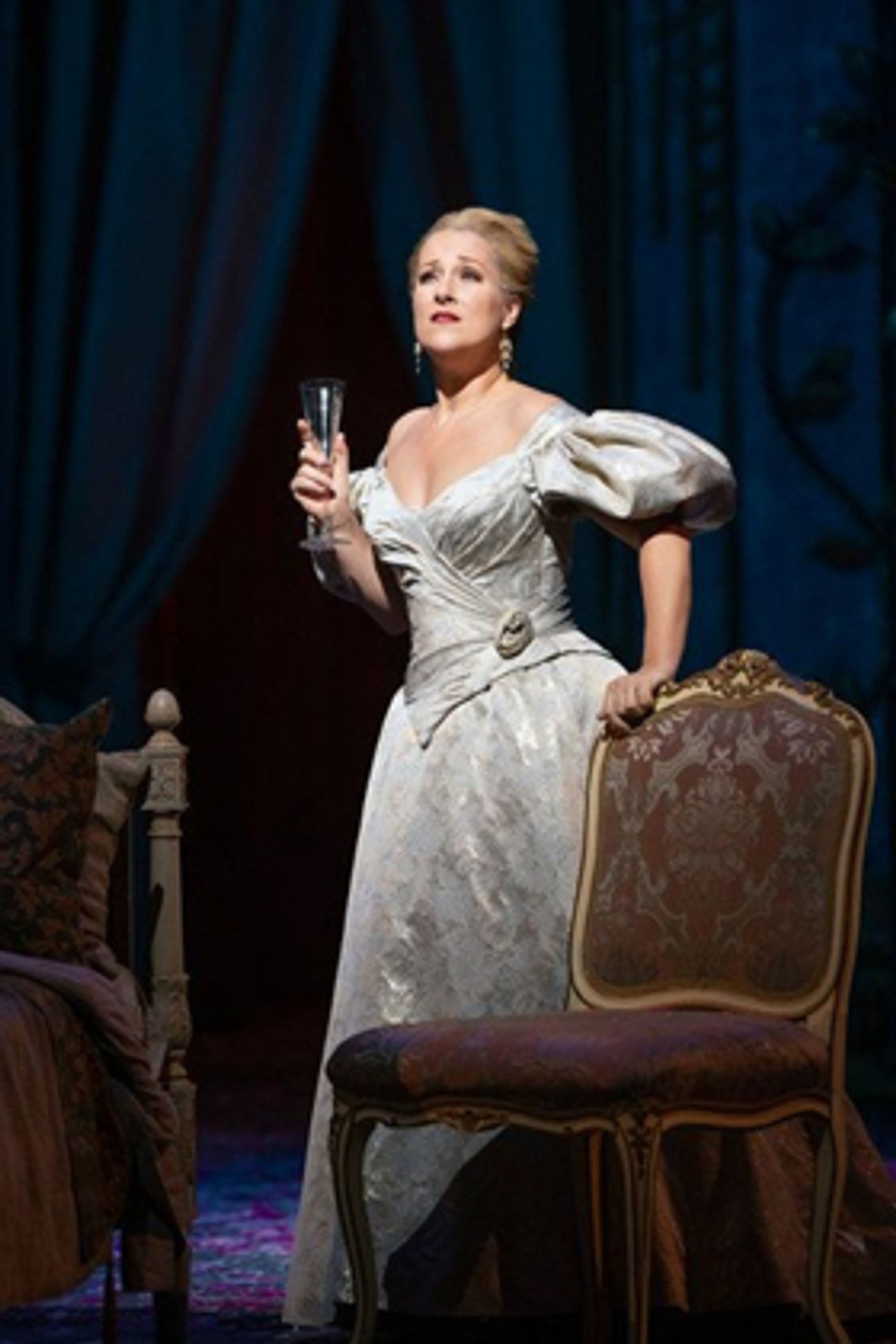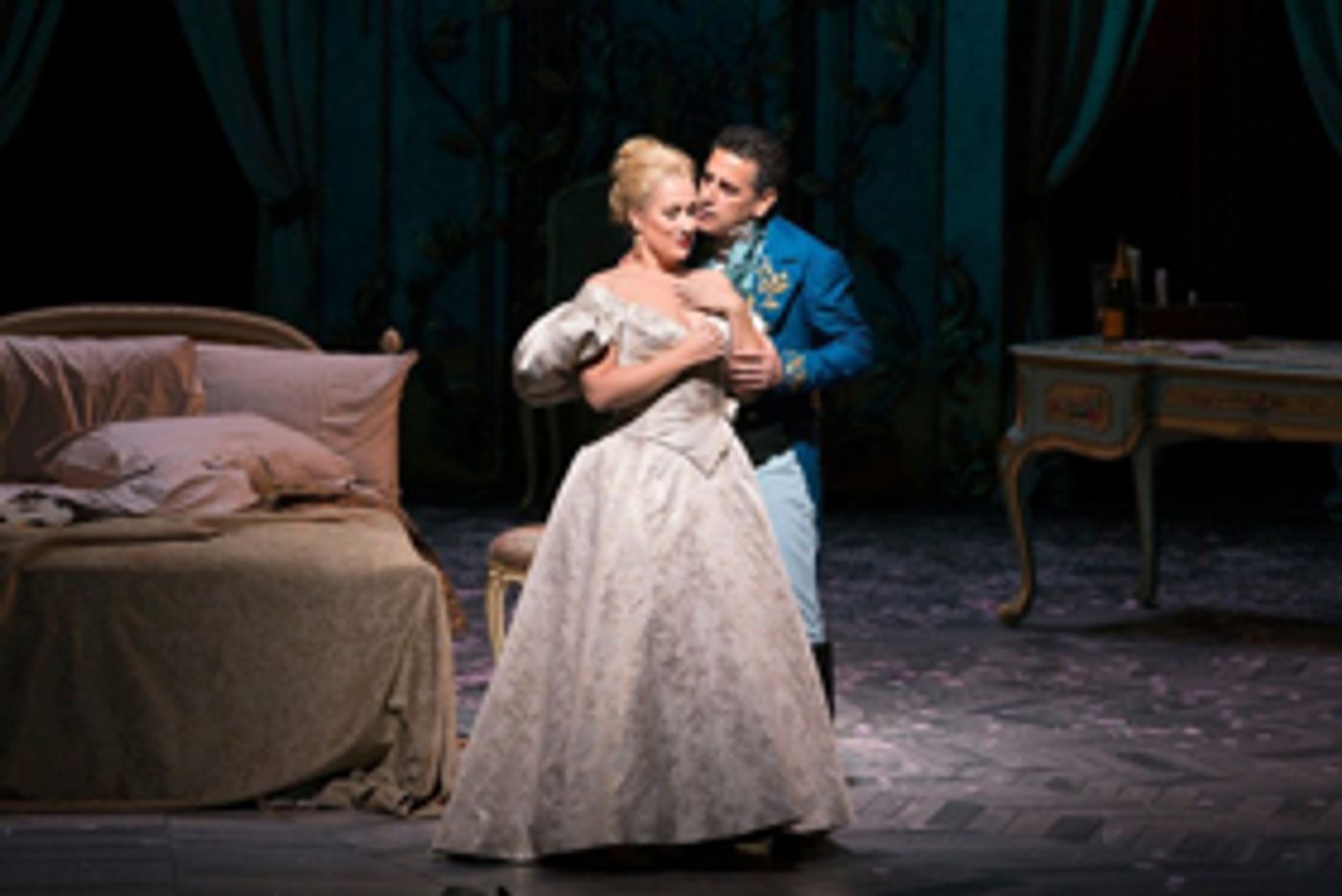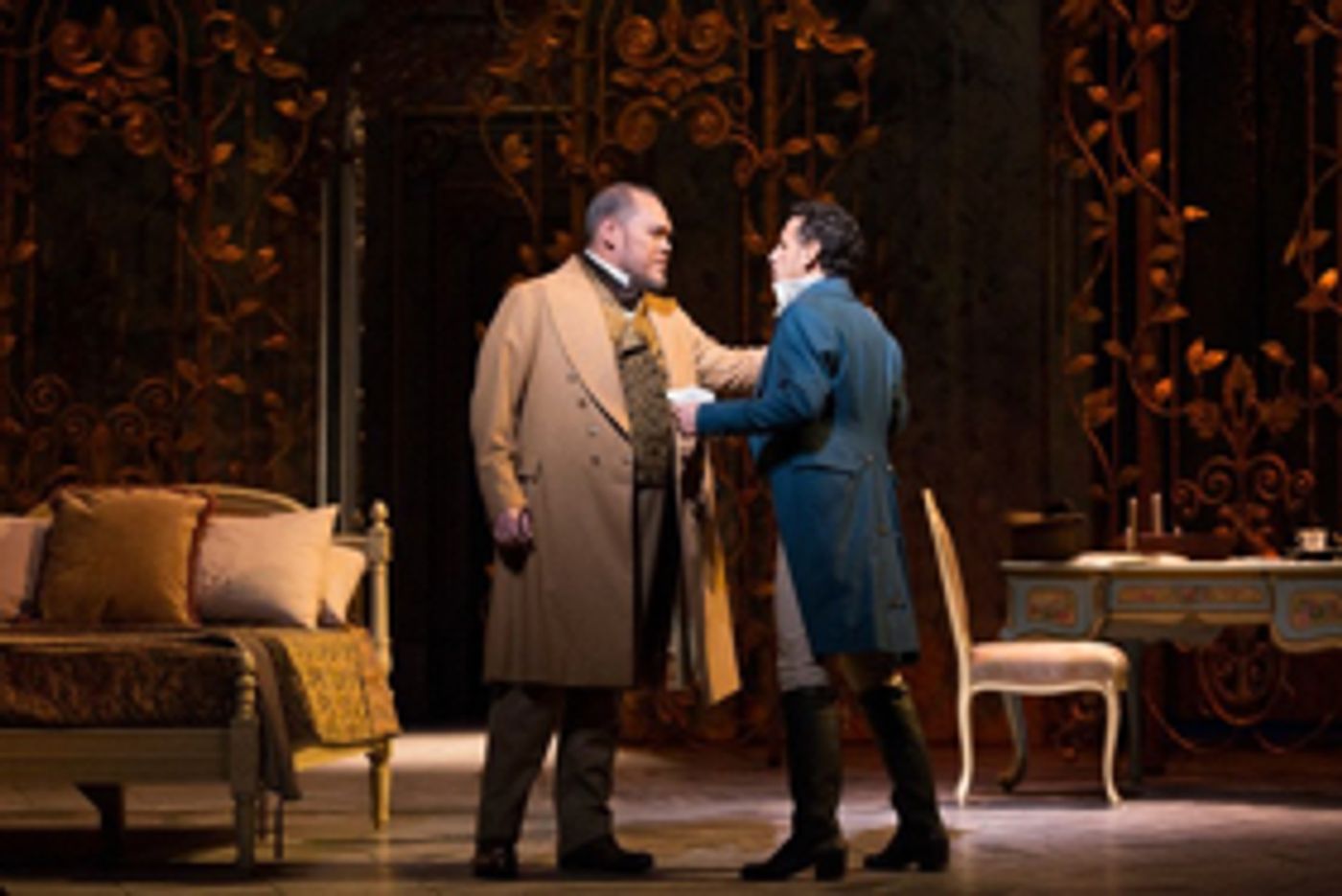Review: Damrau's a Top Violetta with the Met's New Maestro Nezet-Seguin in LA TRAVIATA from Mayer

Marty Sohl/Met Opera
I interviewed Diana Damrau when she had just done her first Violetta, her role debut in the Met's old Willy Decker production (you know, "The One About The Clock," as it might have been called, because a large clock dominated the stage, to show that Violetta is running out of time).
It was a part she lusted over from the time she saw the 1982 Zeffirelli film with the legendary Teresa Stratas as Violetta (and, oh yes, a tenor named Placido Domingo), but was careful about taking on--waiting for the right time in her vocal development.
That was nearly six years ago and the good news is that she has developed into a first-rate Violetta, sounds better than she has in some time, and looks every inch the glamorous (yet consumptive) courtesan, even when the production around her doesn't quite give her the support she needs. She moved gracefully, interacted thoughtfully with her co-stars and, in general, was just the star-turn that we want in this opera.
But there's more to this work than the "lost one" of the title. This TRAVIATA seemed to be part of the Met's new tradition of replacing recent but problematic productions--the Decker take on this opera sent some patrons screaming from the theatre, and then there's that Luc Bondy TOSCA...--with ones that are on the traditional side.

Photo: Marty Sohl/Met Opera
Yet director Michael Mayer seemed determined to shoot himself in the foot. The real clue that he didn't have anything new to say about the opera was when he talked about the production's look-back from Violetta's deathbed as something new. (See that Zeffirelli film, for starters, to show something of its modern history.) You could call this production "The One About The Bed"--because there's a bed, front and center, throughout the opera, to show that the main character's life, before and after, is about...well, you get it.
But even before the evening actually got started, I knew something was awry with Mayer's vision: when I saw a cast credit for "Germont's daughter" in the program. For those not familiar with the opera, the "daughter" is the sister of Alfredo (tenor Juan Diego Florez), Violetta's love, who is spoken about but never seen in the original libretto by Francesco Maria Piave.
Inserting a new, but silent, character on stage is nothing new--in fact, the previous production had a character actor representing the passage of time and Violetta's impending death, sitting beneath that clock. But introducing Alfredo's sister is something else. She's the subject of Verdi's great baritone aria, "Pura siccome un angelo...," sung magnificently here by Quinn Kelsey as Alfredo's father, Pere Germont. The gist: Violetta must break off her affair with Alfredo or her sordid reputation will taint the future happiness and marriage prospects of his angelic sister.

Florez. Photo: Marty Sohl/Met Opera
The glory of this aria--particularly in the hands of someone as thoughtful as Kelsey, with his plangent yet molten vocal resources--is that "Germont's daughter" comes alive without having to be there. To have her hover on the sidelines is a distraction and simply wrong-headed: Why would a father who is so protective of his "pure" child bring her to the house of a famous courtesan? And for Mayer to bring her back later in the opera as a spectre--a "real" angel--as if leading Violetta to the afterlife, well, was beyond words. (Kelsey's other aria, by the way, the baritone staple "Di provenza," was also a showstopper.)
Tenor Florez brought a different kind of Alfredo to the Met, in his first visit here in four years, as he segues to heavier roles. He remains more in the bel canto tradition, a tenore di grazia, than the Alfredo heard from singers like Domingo or Pavarotti (or even Matthew Polenzani when the Decker production was new). It worked quite well in places like "De' miei bollenti spiriti," as he and Violetta awaken in her bed at her idyllic country house, but during the vocal fireworks of the casino scene later in Act II, with his confrontation with the Baron Duphol (the sturdy Dwayne Croft), he seemed a little light-voiced to make his point, at least in a house as big as the Met.
Mezzo Maria Zifchak was a caring, considerate Annina, Violetta's maid. The Met chorus, under Donald Palumbo, was in fine form for the evening's broad demands.
While Christine Jones's scenic design was certainly eye-catching and a good backdrop to the crowd scenes, it didn't really solve the problem of reducing the unit-set's scale for Violetta and Alfredo's intimate scene at the country house, even as the golden grillwork moved in to give some sense of enclosure. The costumes by Susan Hilferty, on the other hand, used a too-vivid color palette for my taste and some costumes that verged on caricature, except for the gorgeous gowns for Damrau. Lorin Latarro debut as choreographer was dismally trite for the dance troop at Flora's (mezzo Kirstin Chavez)party--even in comparison with the excesses of the bacchanal in another of the season's new productions, SAMSON ET DELILA.
For his first production in his official capacity as the Met's new music director, Yannick Nezet-Seguin took an almost delicate approach to the score that was totally plausible, even if it was a far cry from the full-bodied sound one usually expects in middle Verdi. Whether he took his cue from tenor Florez's smaller sound or was simply experimenting with a different kind of take on the usually lush tradition for the opera, is moot. The orchestra was clearly in the palm of his hands--and happy to be there, as was the audience. The torrent of glitter that showered his curtain call was a fitting tribute to him and his future at the Met. Long may he wave.
###
Additional performances of LA TRAVIATA with this cast will take place on December 7, 11, 15mat, 18, 22mat, 26 and 29; an alternate cast, under Nicola Luisotti, and headed by Anita Hartig as Violetta and Stephen Costello as Alfredo, with Placido Domingo as Pere Germont at some performances, will perform on April 5, 10, 13, 17, 20, 24 and 27. Curtain times vary: complete schedule here. Running time: 3 hours and 7 minutes, two intermissions.
The Saturday matinee on December 15 at 12:55pm NY time will be broadcast live to cinemas around the world as part of the Met's "Live in HD" series. For more information visit the Met's website.
Tickets begin at $25; for prices, more information, or to place an order, please call (212) 362-6000 or visit www.metopera.org. Special rates for groups of 10 or more are available by calling (212) 341-5410 or visiting www.metopera.org/groups.
Same-day $25 rush tickets for all performances of LA TRAVIATA are available on a first-come, first-served basis on the Met's Web site. Tickets will go on sale for performances Monday-Friday at noon, matinees four hours before curtain, and Saturday evenings at 2pm. For more information on rush tickets, click here.
Reader Reviews
Videos

